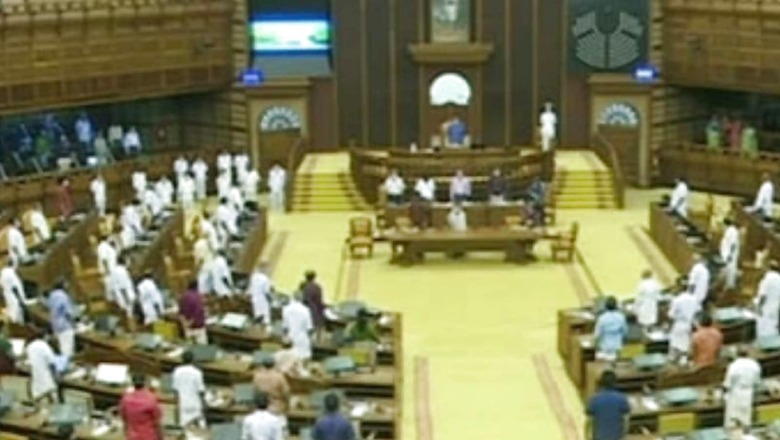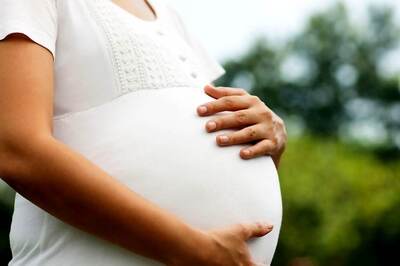
views
Privileges and immunities are not gateways to claim exemptions from criminal law which governs the action of every citizen, the Supreme Court said on Wednesday while dismissing Kerala government's plea for withdrawal of a case against six LDF leaders in connection with the ruckus in the state Assembly in 2015. The apex court said that committing acts of destruction of public property cannot be equated with either freedom of speech in the legislature or with forms of protest legitimately available to the members of the Opposition.
It said an alleged act of destruction of public property within the House by members to lodge their protest against presentation of budget cannot be regarded as essential for exercising their legislative functions. The actions of the members have trodden past the line of Constitutional means, and is thus not covered by the privileges guaranteed under the Constitution, said a bench of justices D Y Chandrachud and M R Shah.
The top court delivered its verdict on two separate appeals, including the one filed by state against the Kerala High Court's March 12 order dismissing the plea for withdrawal of criminal case in the matter. The state Assembly had witnessed unprecedented scenes on March 13, 2015 as LDF members, then in opposition, tried to prevent the then finance minister K M Mani, who was facing allegations in the bar bribery scam, from presenting the state budget. Besides flinging of the speaker's chair from the podium, electronic equipment like computers, keyboards and mikes on the desk of the presiding officer were also allegedly damaged by the then LDF members, causing a loss of Rs 2.20 lakh.
A case was registered for the alleged offences under various sections of the Indian Penal Code (IPC), including 447 (criminal trespass), and under the provision of the Prevention of Damage to Public Property Act. In its 74-page judgement, the top court said no member of an elected legislature can claim either a privilege or an immunity to stand above the sanctions of criminal law, which applies equally to all the citizens.
Privileges and immunities are not gateways to claim exemptions from the general law of the land, particularly as in this case, the criminal law which governs the action of every citizen, it said. It noted that there has been a growing recognition and consensus both in the apex court and Parliament that acts of destruction of public and private property in the name of protests should not be tolerated.
To allow the prosecution to be withdrawn in the face of these allegations, in respect of which upon investigation a final report has been submitted under section 173 of the CrPC and cognizance has been taken, would amount to an interference with the normal course of justice for illegitimate reasons, the top court said. The bench, referring to Articles 105 and 194 of the Constitution which deal with privileges and immunities of MPs and MLAs, said the recognition that there shall be freedom of speech in Parliament and state legislatures underlines the need to ensure the existence of conditions in which lawmakers can perform their duties and functions effectively. Those duties and functions are as much a matter of duty and trust as they are of a right inhering in the representatives who are chosen by the people. We miss the wood for the trees if we focus on rights without the corresponding duties cast upon elected public representatives, the bench said.
It said to claim an exemption from the application of criminal law would be to betray the trust which is impressed on the character of elected representatives as the makers and enactors of law. The top court also discussed the nature of privileges and immunities referable to the House of Commons in the United Kingdom, Referring to the case, the bench said the entire foundation upon which the application for withdrawal under Section 321 of the CrPC was moved by public prosecutor is based on a fundamental misconception of Constitutional provisions contained in Article 194.
It said allowing the prosecution to be withdrawn would only result in a singular result that elected representatives are exempt from the mandate of criminal law. This cannot be countenanced as being in aid of the broad ends of public justice, it said. It also rejected the contention that prosecution against the accused in the case is vitiated for want of sanction of the Speaker. The bench also rejected the contentions regarding video recording of the incident, saying it was not a proceeding of the Assembly which would be protected from legal proceedings under Article 194(2) of the Constitution.
As held above, that acts of destruction of public property are not privileged under the first limb of Article 194(2). Consequently, acts of vandalism cannot be said to be manifestations of the freedom of speech and be termed as proceedings' of the Assembly, it said. The bench said it was not the intention of the drafters of the Constitution to extend interpretation of freedom of speech' to include criminal acts by placing them under a veil of protest. The case, which also involves V Sivankutty who is a minister in the state, was registered against a group of the then LDF MLAs.
The state government had moved the high court against the trial court order dismissing the public prosecutor's application seeking permission to withdraw from prosecution against the accused in the case.
Read all the Latest News, Breaking News and Coronavirus News here.


















Comments
0 comment